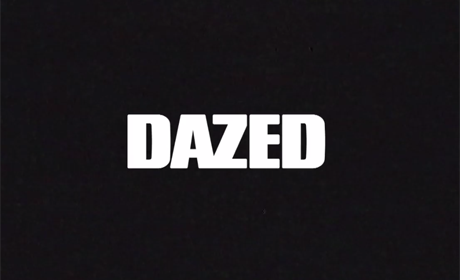
Like many magazine publishers, Dazed (formerly Dazed & Confused) is increasing its online focus in order to enhance print content and reach new audiences.
Dazed Vision, the in-house video team introduced in November last year, is part of the publisher's drive to become a digital-first outlet, designed to complement coverage in its magazine and website.
"We can see a big move into video," said head of Dazed Vision Ravi Amaratunga.
"But that's not just online video, that's show formats that fit on all platforms."
Since its launch, Dazed Vision has been experimenting with new video concepts and produced documentaries in collaboration with Channel 4.
The second series of Music Nation, Dazed's take on cult music scenes, begins on Channel 4 on 6 November, with an episode looking at the home-grown grime music genre.
In Amaratunga's opinion, young people are particularly likely to follow a media organisation or video series because they are loyal to them, rather than the platform used to publish them.
"They don't distinguish necessarily between what's on TV and what's online and what's on a tablet and what's on a mobile," he said. "They see a consistent show and they engage with that."
He added that Dazed Vision could also take risks with its videos in ways traditional broadcasters may not be able to "because they're slaves to the ratings systems".

Screenshot from DazedDigital.com
Dazed works with up-and-coming names in the arts and culture world, finding and talking to people "who may not have even thought about video and putting them in that space".
Amaratunga, previously an editor at Channel 4, said online video was a way for traditional broadcasters to get an insight into the potential of an idea.
With its current partnership with Channel 4, and collaborations with other broadcasters also in the works, Dazed acts as a "middle step between that very creative world and major broadcast TV", Amaratunga added.
"The thing we learned most is that experimentation does work, but when you do have success, building on it quickly is absolutely essential."We're experimenting in supershort form and trying out different types of technical innovation.Ravi Amaratunga, Dazed Vision
Unlike TV channels, he said, online video producers have the option of turning around documentaries at a much faster pace.
This enables experimentation and helps publishers find out what works for them by "trying out different things more often".
But while taking risks can pay off, deliberately attempting to create a viral video may not bring in the expected attention. Having celebrities and a scenario that "should do well" does not always work, and neither does moving too far from the already established voice of the organisation.
"The things that have been the most successful are [those] that resonate with our core audience the most," said Amaratunga.
After its first year, Dazed Vision is planning to build its engagement "outside of the Dazed platform", including creating bespoke content for social media, in order to encourage new audiences to visit the site.
"We have a younger audience who live their lives on social", Amaratunga said.
"We're talking to all of the major platforms and experimenting in supershort form and trying out different types of technical innovation."
Free daily newsletter
If you like our news and feature articles, you can sign up to receive our free daily (Mon-Fri) email newsletter (mobile friendly).
Related articles
- Trine Syvertsen, professor of media studies at University of Oslo, on digital detoxing during the covid-19 crisis
- What does a Taiwanese digital news startup teach us about growth in a capped market?
- ‘Journalism is at risk because it is increasingly disconnected from society’
- David Leigh, veteran investigative journalist, on what reporters of tomorrow need to know about investigative journalism today
- Washington Post launches smart TV app to introduce news content onto streaming devices











